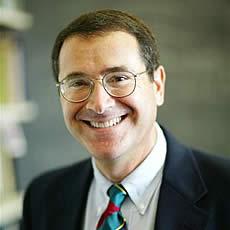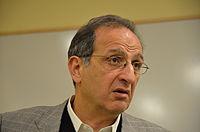Chemical imbalance theory of depression: clearing up some misconceptions
The scale of the response to our recent study finding that there was no support for the idea that low serotonin causes depression – the so-called “chemical imbalance” theory of depression – was enormous. Our paper is one of the 400 most shared of the 21 million papers that have ever been tracked. And our article in The Conversation was read by more than 1.3 million people. However, we feel that some of the responses missed the point, and we’d like to address those points here.
The main response from leading psychiatrists was that antidepressants work and it does not matter how. However, whether antidepressants work is not clear-cut, and how they produce their effects matters.
But first, we want to highlight a point skipped over by many commentators: for decades, people, including doctors, have been misled by false claims about what antidepressants are doing. The marketing line that antidepressants correct an underlying chemical imbalance has influenced people’s choices about their treatment, their self-perception, and their outlook on recovery.
We should acknowledge that people were misled and take stock of how corporate interests and marketing have affected medical discussions, otherwise we will be condemned to repeat these mistakes with new pharmaceutical products. For example, various unsubstantiated theories are currently circulating about how esketamine might rectify other chemical imbalances or other brain abnormalities.
Many people taking antidepressants get better, but whether they work or not is contested. The evidence for antidepressants’ effectiveness comes from randomised trials that show that people improve when they are given an antidepressant or a placebo.
On average, antidepressants reduce depression scores slightly more than a placebo. But the difference is small: two points on a 52-point depression scale. Evidence from large analyses of patient responses and National Institute of Health and Care Excellence guideline committees suggests that this is not a big enough difference to be noticeable by patients or doctors.
Even this difference may be exaggerated because antidepressants cause side-effects and other more subtle changes that let people know they are taking the active drug rather than the placebo, which may lead to amplified placebo effects.
Furthermore, the studies of antidepressants last for six to eight weeks and cannot provide evidence of whether taking antidepressants for longer periods is worthwhile, especially the months and years that many people take them for.
But even if we accept that the small difference between antidepressants and placebo is a real effect of the drug, there is no reason to assume, as many experts do, that it reflects the action of antidepressants on some underlying biological mechanism of depression.
Possible explanations for antidepressants small effect
First, although brain biology is involved in everything we think and feel, there are no established specific biological causes of depression. Other proposed ways in which antidepressants might target underlying mechanisms are hypotheses, often drawn from animal studies or cells in a dish and none have been consistently demonstrated in humans.
Second, there is another explanation for what antidepressants do. Antidepressants are drugs that change brain chemistry, and like other drugs that do this, they produce changes in our mental states and experiences. These changes can temporarily override our current feelings.
For example, alcohol has sedative and relaxing effects that can reduce anxiety and briefly “drown your sorrows”, but this is not because alcohol works on the underlying mechanisms of anxiety or depression. Alcohol’s effects (with individual variation) are experienced by everyone and not just people with one of these diagnoses.
Antidepressants do not commonly make people merry like alcohol can. They cause a variety of more or less subtle mental alterations, depending on the chemistry of the drug. One common, dose-dependent alteration, is numbing of emotions.
This effect could also explain why antidepressants perform a little better than placebo in randomised trials. In the short term, the numbing may make people feel less depressed, but in the long term, the benefits are less clear.
This is why drawing analogies between antidepressants and paracetamol – as one commentator has done – is misleading. Paracetamol does not produce significant mental changes, and hence these cannot account for its effects on pain.
Unlike depression, we know there are specific biological mechanisms that produce pain, and we can therefore conclude that paracetamol is working through modifying these, even if we do not know exactly how it does so.
The mechanism of action of antidepressants is crucially important for considering the pros and cons of taking them, especially in the long term, given that we only have short-term trial data.
The idea that antidepressants correct an underlying chemical or other problem in the brain is reassuring – we do not have concerns about the long term use of insulin in diabetics. But if antidepressants are changing brain chemistry, without evidence they are rectifying anything, this is a different situation.
Other drugs that affect the way we feel and think by altering brain chemistry, such as alcohol and other recreational drugs, can cause concentration problems, sleep disturbance and withdrawal symptoms when they are used for long periods – all of which are concerns for antidepressants.
Lastly, we know more about what causes depression than is often thought. The number of stressors in life – job loss, relationship breakdown, physical illness – strongly predicts who will become depressed.
An over-emphasis on looking for the chemical equation of depression may have distracted us from its social causes and solutions. We suggest that looking for depression in the brain may be similar to opening up the back of our computer when a piece of software crashes: we are making a category error and mistaking problems of the mind for problems in the brain.
It would be wise to observe caution with drugs whose effectiveness is not certain, whose mode of action is unknown, and which have many side-effects, especially for use in the long term.
Mark Horowitz, Clinical Research Fellow in Psychiatry, UCL and Joanna Moncrieff, Professor of Critical and Social Psychiatry, UCL
This article is republished from The Conversation under a Creative Commons license. Read the original article.















